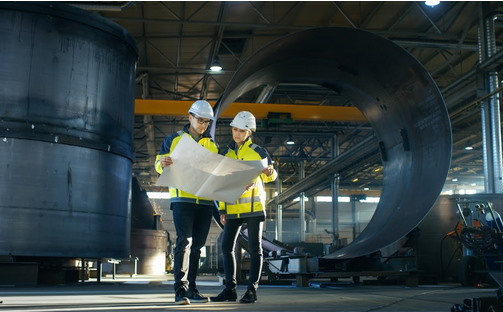Construction Vs. Manufacturing: What's the Difference?
- Written by News Co

Construction and manufacturing are two very different processes that often get confused. Although there are some similarities between the two industries they each offer a distinctly different solution. You might argue that both manufacturing and construction both involve using manual labour for the production of something to be sold commercially, which is true but the final product is very different.
Construction typically focuses on innovative equipment solutions for creating physical structure such as airports, roads, bridges, office buildings, apartments and other similar structures. Manufacturing, on the other hand, usually refers to the process used to produce finished goods, which are then purchased, by consumers, retailers or distributors to turn a profit. While high-vis, block and tackle, heavy machinery, large equipment and large workforces are required in both manufacturing, making them appear similar, these two industries really are worlds apart.One thing these two industries have in common, is that construction as well as manufacturing are both heavily regulated by the government. The rules are not only regarding health and safety aspects, but there are also many plant and equipment inspection obligations. An increasingly popular inspection method is NDT (Non-Destructive Testing) which is used in both industries, ensuring compliance is being met.
Continue reading to learn more about the differences between the construction and the manufacturing industries.
An Overview Of Manufacturing
Manufacturing typically takes place indoors, inside a plant factory or specially designed facility. Generally, employees work in a particular section of the manufacturing process with little interaction with those in other divisions. A combination of manual and labour and automation are used to transform the base materials into the final product. Through the use of an assembly or production line, the product is created from start to finish and then sold to distributors, retailers or consumers.
Construction Explained
Construction, on the other hand, is largely completed outdoors. Various materials are used to construct a range of different types of structure. Construction typically relies on a lot of manual labour using a range of different tools and heavy machinery. In the construction industry, projects are completed for a range of clients, working on private, commercial and government projects. The world of construction includes a multitude of skill sets, trades and specialists to work alongside each other to bring a project to completion.
Different Approaches
While both construction and manufacturing involve the use of manual labour, those working in each industry are supported differently. Typically, in manufacturing, equipment and automated processes are heavily relied on to bring the product to market. In construction, workers use more tools and are assisted by heavy machineries such as cranes, diggers and large mixers. Advances in technology are essential to the improvement in manufacturing processes while in the construction industry tried and tested tools still play an important role. Technology is impacting the construction industry, improving tools and techniques used by those in different areas of the business. However, technology has completely transformed the manufacturing industry.
Implications Of Poor Quality
As with any business, it’s vital that a quality end product is delivered to the customer. Whether that is a building or something from the production line, maintaining a certain level of quality is crucial to your ongoing success. With that said, the implications for poor quality control is much greater in the construction industry. Poor construction can result in unsafe buildings, which can be dangerous to anyone using them and those in the surrounding area. When manufacturers deliver a poor quality product, they are likely to damage their brand and reputation, which is serious for the business, is not as damaging to the community at large as a poorly completed building, bridge or road.
Understanding The Basic Differences Between Manufacturing And Construction
The manufacturing and construction industries certainly have a lot in common but they are two completely different entities. Understanding the differences between these two will help you to gain a better appreciation for what these industries provide. Both are integral to our economy, employing countless numbers of Australians and provide us with homes, commercial spaces and a myriad of products that make our lives easier, more comfortable and more enjoyable.







